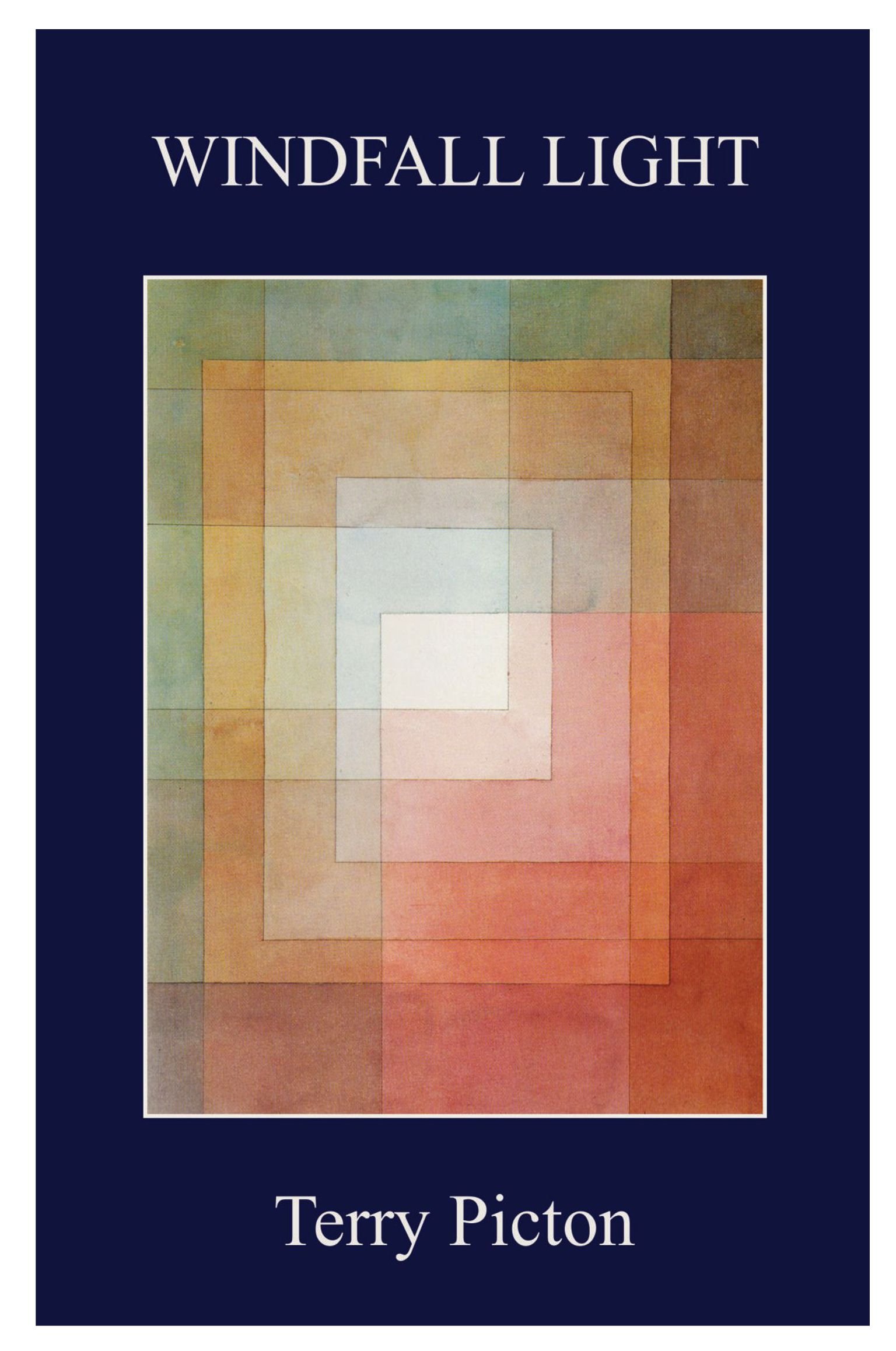
Windfall Light is an old man’s self-indulgence: a small book of poems written over the course of my life. The cover shows a painting by Paul Klee. The title comes from a poem by Dylan Thomas. Most of the poems are formal in style, although the rhymes are as often slant as regular. This post presents three poems from the book.
This poem is about a mother comforting her child
Hush
A mother picks
Up her fussy child
And slowly rocks
From side to side
Gently jogging
Up and down
Thrice each swing
Above the ground
Lightly patting
Baby’s back
With a descant
Melody
That finds a meter
For the why
And resolves the need
To cry.
The following poem is about a photogravure of the ruins of Jedburgh Abbey (below). One can see through the photographer the outline of the grave before which he stands.
Francis Frith at Jedburgh
In the early days of photography,
and ever since, to catch a light that’s low
or change a sparkle into sheen,
the exposure of the film was very slow,
and in this passing time the photographer
could come into the field of view
and wait unmoving for a while, before
covering the lens to start anew.
The walking-in and walking-out were all
too fast to cause a lasting trace
upon the film, but the standing still
would leave upon the record of the place
a clear, faint outline of the person,
through whose quiet transparency
the ruined abbey, in all its undone
truthfulness, we now can see.
The roof is open to the sky, the walls
arrayed in sunlight, a grassy floor
now covers the crumbled tiles,
and through the camera’s open door
the old light of graves and broken stone
takes through time a gentle passage
through the fading record of the man
who caught himself within his image.
The following sonnet is about the meeting in Emmaus after the crucifixion between two disciples and someone who they thought was Jesus (Luke 24:13-32)
Emmaus
I am not the one who died upon the cross –
You really do not recognize me.
That easy way to remedy your loss
Is just what your sorrow wants to see.
Look not for miracles to stop your grief –
Death is not followed by resurrection,
And mystery is not solved by false belief.
You heard him clearly say that “It is done.”
We should simply remember what he taught:
I fill with wine our glasses to the brim
And new bread now break for us to eat;
Blessed be our life, though it be far too short.
And if you truly would remember him,
Love each and every one that you will meet.
If you wish to obtain a physical copy of this book, I can send you one for 10 CAD (mainly to cover mailing costs) if you give me your mailing address. Payment can be made through an Interac e-Transfer to terry.picton@gmail.com. If Interac is not possible, please contact me to suggest some other method of payment. Or if you would like a pdf copy of the book, just send me your email address.





Thank you Terry for your latest post. I have enjoyed and learned from your previous informative and thought-provoking posts but this one was special. I read your sonnet Emmaus and it deeply touched me. In addition to the sonnet’s treatment of grief, miracles and the basic lessons from teachings, the village of Emmaus was formative in my personal development. In 1967, not yet 19 years old, I took part in the Six Days’ War, confronting the Jordanian Army and their Egyptian commando reinforcements in the Latrun area and the village of Emmaus. Until then I had a rosy image of humanity and good will, but with the first barrage of mortar shells on me, I realized good will and ideals were not enough for a perfect world. That was the first time I came face to face with death, cruelty and human suffering, but unfortunately not the last. This past June, 55 years later, I visited the area again, the bare old battlefield was a park covered in trees. I could hardly find and recognize the trenches where the fighting took place, people were picnicking, riding bicycles and visiting the Roman period archeological finds and all was peaceful. The past events were forgotten and normalcy was resurrected. Although, like your sonnet’s version of the walk to Emmaus, I do not believe in resurrection, I had a revelation of the resurrection of tranquility and normalcy in my personal walk to Emmaus.
Dear Hillel I think that your concept of resurrection – when peace and normal human life replaces war – is the best way to consider it. Many thanks for your memories.